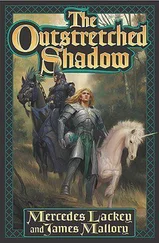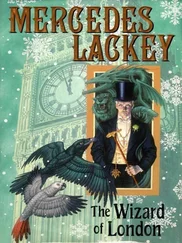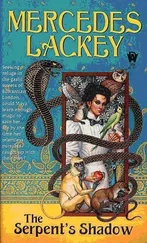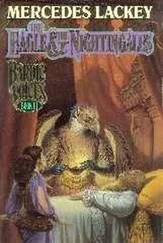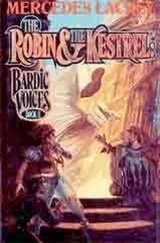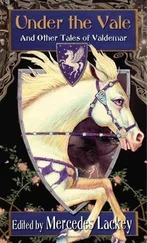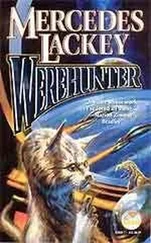* * *
The room the duke entered was spartan. Stone-flagged, cool. Its only furnishings a wooden table which leaned more to sturdiness and functionality than elegance; and a single chair, simple and not upholstered. Hardly what one would expect the lair of the Lord of the cities of Ferrara, Este, Modena, and Reggio nell' Emilia to look like. On the wall above the fireplace was a solitary piece of adornment. And that was absolutely typical of Dell'este. It was a sword, hung with crimson tassels. The pommel showed faint signs of generations of careful polishing. The wall opposite the fireplace contained an entire rack of such weapons.
The Old Fox sat at the table and looked at the colorless man standing quietly in the corner. Antimo Bartelozzi had the gift of being the last person in a crowd of two that you'd ever notice. He was also utterly loyal, as the duke well knew. Bartelozzi had had ample opportunity to betray the Dell'este in times past.
The duke used other spies and agents for various other tasks. Antimo Bartelozzi was for family affairs. To the duke that was the only thing more precious than good sword-steel.
"Greetings, Antimo. Tell me the worst."
The lean gray-haired man smiled. "Always the same. The worst first. The 'worst' is that I did not find them, milord. Either one. Nor do I have knowledge of their whereabouts."
The Old Fox shuddered, trying to control the relief which poured through him. "My grandsons are alive."
Bartelozzi paused. "It's . . . not certain. To be honest, milord, all I've established is that Marco Valdosta was last seen the night your daughter Lorendana was killed. And I had established that much two years ago. But I did find this."
The duke's agent reached into a small pouch. He handed over a small, sheathed knife, whose pommel was chased and set with an onyx. "This dagger is a signed Ferrara blade that turned up in the thieves market at Mestre. The seller was . . . questioned. He admitted to having bought it from one of the Jesolo marsh-bandits."
The duke hissed between his teeth. He took the blade and unscrewed the pommel. Looked at the tiny marks on the tang. "This was Marco Valdosta's blade." He looked at the wall. At the empty space next to one of the hereditary blades on its rack. The space for a small dagger given to a boy, next to the sword--still in its place--destined for the man. His grandson Marco's blades.
"And you don't take this as another bad sign? Perhaps whoever stole the dagger from him killed the boy." The Old Fox eyed Bartelozzi under lowered eyebrows. "You found one of the bandits. Questioned him."
Antimo nodded. "They robbed the boy, yes. Beat him badly. Badly enough that the bandits assumed he would not survive. But . . . there are rumors."
"The Jesolo is full of rumors," snorted Dell'este. "Still, it's something."
He moved toward the blade-rack. "Tell me that I can return it to its place, Antimo. You know the tradition."
Behind him, he heard a little noise. As if Bartelozzi was choking down a sarcastic reply. The duke smiled grimly.
" 'No Ferrara blade, once given to a Dell'este scion, may be returned until it is blooded.' You may hang it in the rack, milord. That blade is well and truly blooded. I slid the bandit into the water myself. The thief-vendor also. There was barely enough blood left in them to draw the fish."
Dell'este hung the dagger and turned back. "And the younger boy? Sforza's bastard?"
Antimo Bartelozzi looked decidedly uncomfortable. "Milord. We don't know that the condottiere was his father."
"Spare me," growled the duke. "My younger grandson was the spitting image of Sforza by the time he was ten. You knew my slut daughter, as well as I did. She was enamored of all things Milanese, and Sforza was already then the greatest captain in Visconti's service."
Antimo studied Dell'este for a moment, as if gauging the limits of his master's forbearance. It was a brief study. For Bartelozzi, the Old Fox's limits were . . . almost nonexistent.
"That is a disservice to her memory, milord, and you know it perfectly well. To begin with, her devotion was to the Montagnard cause, not to Milan. Your daughter was a fanatic, yes; a traitor . . . not really."
The duke's jaws tightened, but he did not argue the point. Bartelozzi continued:
"Nor was she a slut. Somewhat promiscuous, yes; a slut, no. She rebuffed Duke Visconti himself, you know, shortly after she arrived in Milan. Quite firmly, by all accounts--even derisively. A bold thing for a woman to do, who had cast herself into Milan's coils. That may well have been the final factor which led Visconti to have her murdered, once she had fallen out of favor with her lover Sforza. Not even Visconti would have been bold enough to risk his chief military captain's anger."
Dell'este restrained his own anger. It was directed at the daughter, anyway, not the agent. Besides, it was an old thing, now. A dull ember, not a hot flame. And . . . that core of honesty which had always lain at the center of the Old Fox's legendary wiliness accepted the truth of Bartelozzi's words. The duke's daughter Lorendana had been headstrong, willful, given to wild enthusiasms, reckless--yes, all those. In which, the duke admitted privately, she was not really so different from the duke himself at an early age. Except that Enrico Dell'este had possessed, even as a stripling prince, more than his share of acumen. And . . . he had been lucky.
Bartelozzi was continuing. "All we know about the younger boy is what we learned two years ago. He was thrown out of Theodoro Mantesta's care once the true story of Lorendana's death leaked out. Mantesta, not surprisingly, was terrified of Milanese assassins himself. Your youngest grandson seems to have then joined the canal-brats."
"Damn Mantesta, anyway--I would have seen to his safety." For a moment, he glowered, remembering a night when he had slipped into Venice incognito. The Duke of Ferrara was no mean bladesman himself. Theodoro Mantesta had been almost as terrified of him as he had been of Milanese assassins. Almost, but . . . not quite. And for good reason. In the end, Dell'este had let him live.
The Old Fox waved his hand irritably. "I know all this, Antimo! Shortly thereafter, you discovered that a child very like him, from the poor description we had, was killed about three weeks later. And while it wasn't certain--hundreds of poor children live under the bridges and pilings of Venice--it seemed logical enough that the victim was my youngest grandson. So tell me what you have learned since, if you please."
Antimo smiled. "What I have learned since, milord, is that the boy whose throat was slit had actually died of disease the day before."
The duke's eyes widened. "Who would be that cunning? Not my grandson! He was only twelve at the time."
"Two ladies by the name of Claudia and Valentina would be that cunning, milord." Bartelozzi shook his head. "You would not know them. But in their own circles they are quite famous. Notorious, it might be better to say. Tavern musicians, officially--excellent ones, by all account--but also thieves. Excellent thieves, by reputation. And according to rumor, shortly thereafter the two women gained an accomplice. A young boy, about twelve. I've not laid eyes on him myself, mind you--neither have any of my agents. The boy seems to have been well trained in stealth. But I have gotten a description, quite a good one. In fact, the description came from a former mercenary in Sforza's service. 'Could be one of the Wolf's by-blows,' as he put it. 'Lord knows he's scattered them across Italy.' "
The Duke of Ferrara closed his eyes, allowing the relief to wash over him again. It made sense, yes--it all made sense. His youngest grandson had been a wily boy--quite unlike the older. As if all of the legendary cunning of Dell'este had been concentrated in the one, at the expense of the other. Combined, alas, with the amorality of the father Sforza. Even when the boy had been a toddler, the duke had found his youngest grandson . . . troubling.
Читать дальше

